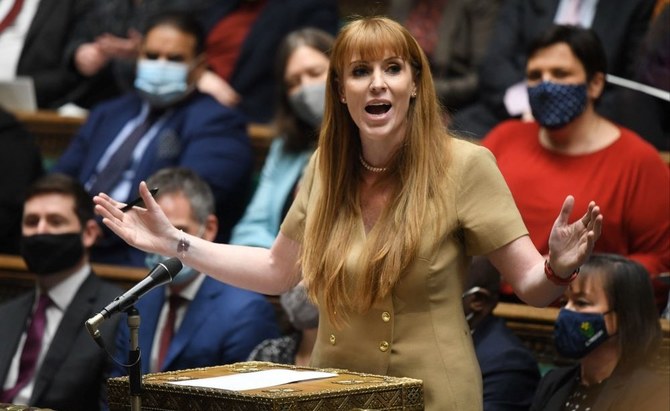
When, given a choice of 329 elected lawmakers, the Iraqis picked the unelected Adel Abdul Mahdi for prime minister, he was said to be the compromise choice. In fact, he was chosen for his weakness; to be a figurehead representing the status quo. So with Iraqis now on the streets demanding root-and-branch reform of their political system, it is hardly surprising that the state has no answers to offer.
Instead, the UN looks to Grand Ayatollah Ali Al-Sistani, the most influential cleric in Iraq and a vocal supporter of the protests, as well as the only Iraqi authority left that is not dominated by Iran. No government or prime minister can survive in Iraq without his blessing. Faced with such a formidable opponent and the people’s resilience, Iraq’s Shiite, Kurdish and pro-Iranian Sunnis are scrambling to present a united front.
But promises to combat the corruption that is endemic in Iraq are unconvincing when uttered in the presence of people who are known to have embezzled public funds. Pledges from Iraqi oligarchs to bring to justice those who commit violence against protesters are equally absurd, since the very same private militias whose lust for violence is now out of control throughout the country are under the command of many of those same oligarchs.
Other ideas floated by the Iraqi political establishment include approving a new electoral law, the formation of an independent election commission and holding parliamentary elections early, in a year’s time. The demand they have not addressed is the one uppermost in the protesters’ minds: Get Iran out of Iraq.
For weeks, Iraqis have been burning pictures of Iranian mullahs and chanting anti-Iranian slogans. Promising new, free and fair elections under new electoral laws is pointless without addressing the problem of armed militias that threaten anti-Iran candidates and strong-arm voters into casting their vote to favor Iran.
Unlike Lebanon and Iran, where protests have been driven by sinking economies, Iraq has a stable national currency and national income thanks to the 4 million barrels of oil it exports every day. The problem, however, is Iran’s abuse of Iraq’s resources, forcing successive Cabinets to bankroll pro-Tehran militias and replacing the governor of the central bank with one who looks the other way when Tehran bids in local currency at US dollar auctions and then transfers foreign currency to Iran, where it is desperately needed.
Iran has also tried to replicate its dual rule system, in which an unelected regime and its militias have the upper hand, while the elected government and regular armed forces have little say.
In Iran, the supreme leader has authority over the government and the militias have a say in public budgeting, but in Iraq it is the elected government that administers national income and the pro-Iranian militias are reliant on Baghdad for their salary payments. And so, enter corruption, which has enabled Iran to suck the Iraqi government dry to bankroll its own endless regional conflicts.
The discovery of oil a century ago brought prosperity to Iraq. But it has also made the Iraqi people addicted to state handouts. On a per capita basis, the state is one of the world’s biggest employers. The sanctions imposed during the Saddam Hussein era are long gone, yet the government still provides food rations to all Iraqis, regardless of income level.
But, as the oil revenue flows into the pockets of corrupt officials and the Iran-backed militias, Iraq grows poorer. Basra, Iraq’s second most populous city, floats on oil reserves and rests on the confluence of the country’s two major rivers. Yet it is perhaps the most underdeveloped city in the Middle East, where residents go thirsty as river pollution levels surge to unprecedented levels.
For Iraq to haul itself out of misery, Al-Sistani will have to reconsider his past decisions. It is likely that he now regrets rushing to hold elections in 2005, post-Saddam. Free and fair elections are only possible in stable countries and, with de-Baathification running at full speed at the time, results were skewed against the Sunnis.
Corruption has enabled Iran to suck the Iraqi government dry to bankroll its own endless regional conflicts.
Hussain Abdul-Hussain
Secondly, Al-Sistani must by now realize that the fatwa he issued in 2014 urging Iraqis to take up arms and fight against Daesh has run its course and needs to be repealed. This would remove any legitimacy from the militias, further exposing their allegiance to Iran, and force them either to disband or become outlaws.
In the same way that he permitted de-Baathification, Al-Sistani should now encourage “de-Iranification.” Without it, Iraq will remain entangled in Iran’s illicit regional adventurism.
If Iranians want to live in a rogue state in conditions of perpetual war and poverty, that’s up to them. But Al-Sistani has the opportunity, with popular support and UN approval, to uncouple Iraq from Iran and let Iraqis look to use their resources for their own development and not for the military adventures of the mullahs next door.
Hussain Abdul-Hussain is the Washington bureau chief of Kuwaiti daily Al-Rai and a former visiting fellow at Chatham House in London. Copyright: Syndication Bureau
Disclaimer: Views expressed by writers in this section are their
own and do not necessarily reflect Arab News" point-of-view












